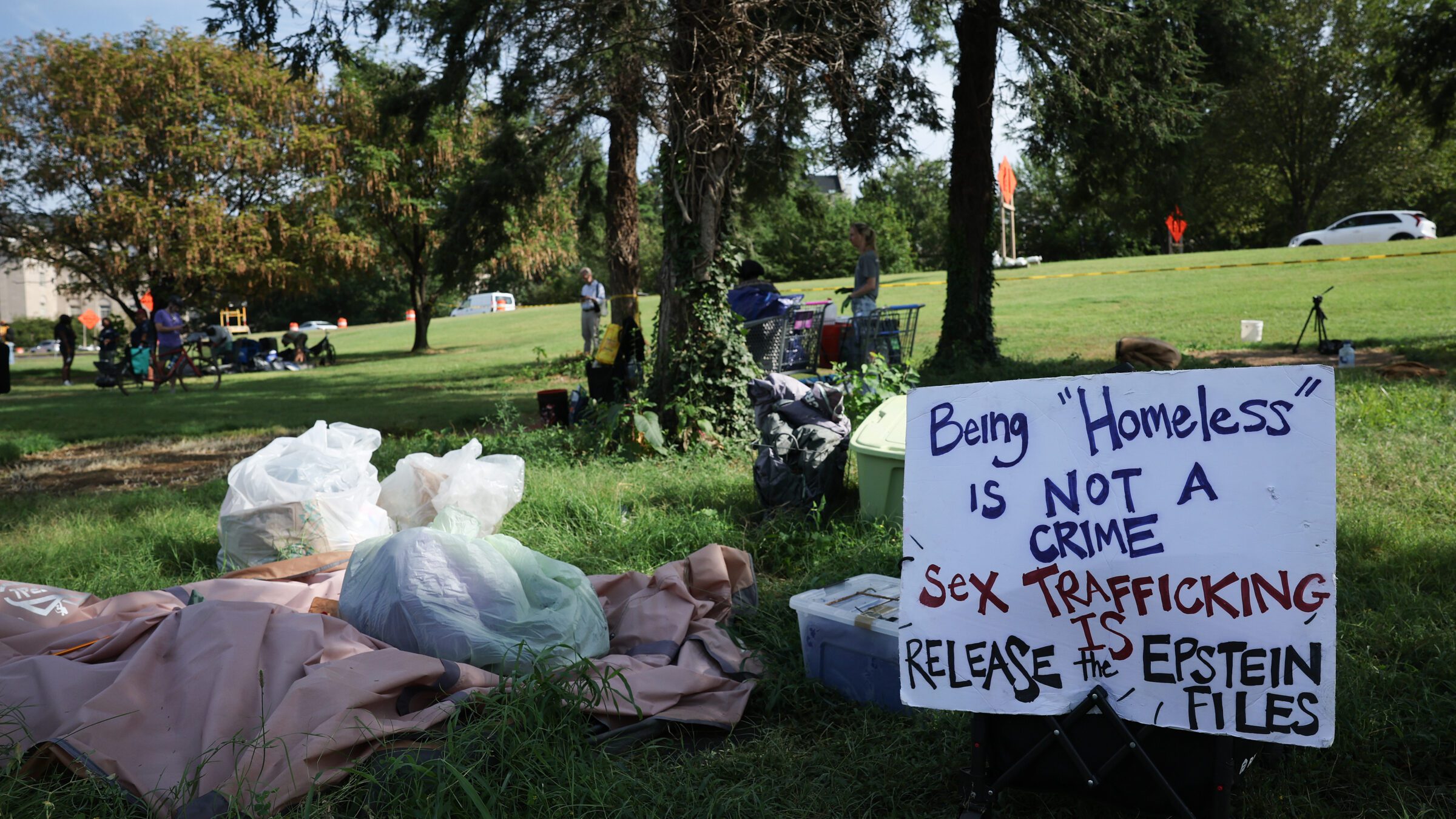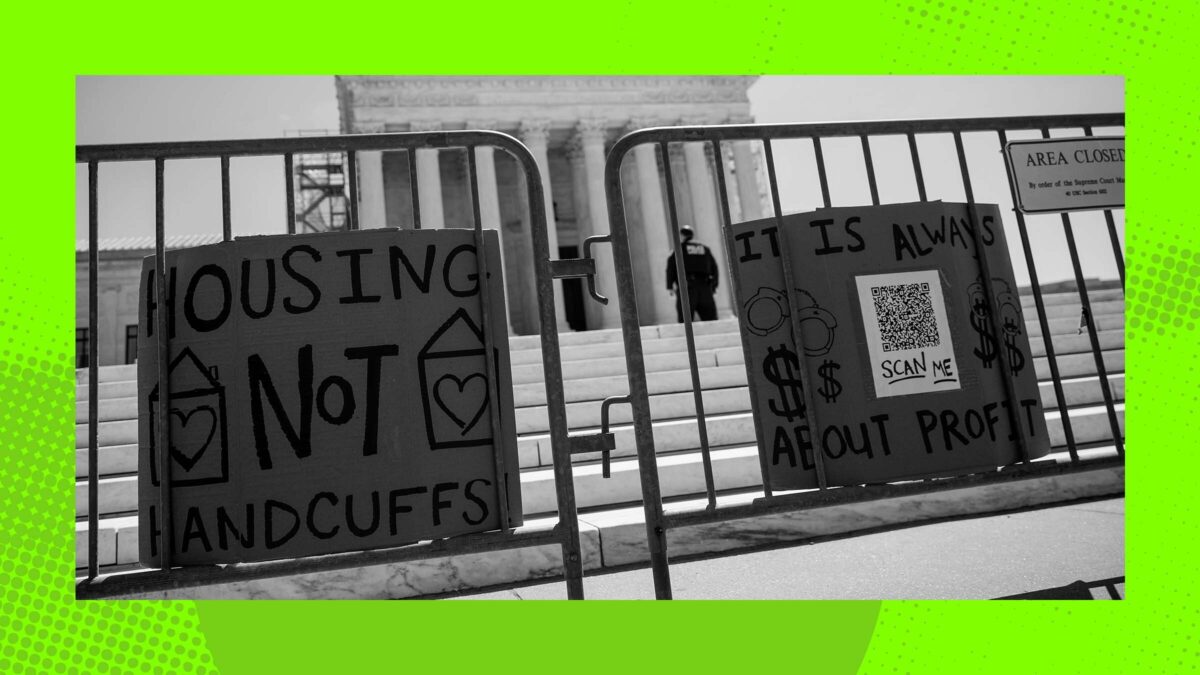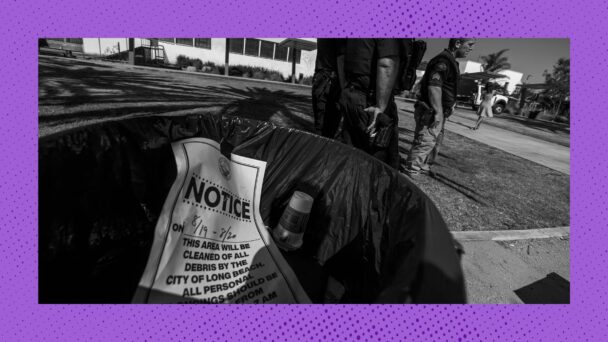In his ongoing quest to find the most vulnerable group of people on whom he can inflict needless cruelty, President Donald Trump has spent several weeks promising to make life even more challenging for homeless people in Washington, D.C. On Sunday, he posted on Truth Social that unhoused people would have to leave “IMMEDIATELY,” and to go “FAR from the Capital” for their next place to stay. The next day, he announced plans to federalize the Metropolitan Police Department and deploy the National Guard to remove encampments from “our beautiful, beautiful parks,” which, he says, are too “dirty” to enjoy anymore.
“Some of those people are from different countries, different parts of the world—nobody knows who they are, they have no idea, but they’re there,” Trump added, because there is nothing his brain can conceptualize separately from the xenophobia that animates his entire political agenda. “They’ll not be allowed to turn our capital into a wasteland for the world to see.” White House officials haven’t been forthcoming about specific plans for implementing the directive, but advocates in D.C. expected sweeps to start on Thursday morning, and arrests to begin in the evening. The president has decided that he does not want to see poor people anymore, and does not particularly care what it will take to effectuate that result.
The sweeps in D.C. are happening a year and change after the Supreme Court’s decision in Grants Pass v. Johnson, in which the six conservative justices lifted even modest constitutional restrictions on local government officials’ authority to criminalize homelessness. And although it would be wrong to say that Trump’s vow to banish D.C.’s unhoused population to places unknown is directly attributable to Grants Pass, they are not unrelated, either: The Court’s decision and this week’s crackdown are part of a long, bipartisan tradition of powerful people washing their hands of responsibility for their failed policy choices. Ensuring the availability of stable, affordable housing requires solving hard problems. Empowering cops to harass people dozing on benches is easy, which is why lazy politicians who are bad at their jobs keep doing it.
Speaking of which: Since the Court decided Grants Pass, elected officials in cities across the country have introduced more than 320 bills criminalizing unhoused people, according to the ACLU; nearly 220 of these bills have passed. And Trump’s victory in November gave officials a powerful new ally: In an executive order issued in July, Trump directed Attorney General Pam Bondi to prioritize grants for state and local governments that, among other things, agree to enforce camping bans “to the maximum extent permitted by law.” To the extent that mayors and city councilmembers might feel privately reluctant to start bulldozing encampments, the possibility of losing valuable federal funding could lead many to feel as if they have no choice.

(Photo by Win McNamee/Getty Images)
In December, the U.S. Department of Housing and Urban Development released the results of its annual census of unhoused people, which volunteers conducted on a single night one year earlier: 770,000 people, up 18 percent from the year before. But this survey, which is known as the point-in-time count, comes with a serious caveat: It tallies only people who are unsheltered or in certain types of formal shelter, and omits, for example, people who are living in extended-stay motels, doubling up with relatives, and so on. It also excludes unhoused people who are in jail or prison; one 2017 analysis of data in Houston found that adding incarcerated people to the count caused the total to increase by 57 percent.
What all this means is that the actual number of people experiencing homelessness in America, according to the journalist Brian Goldstone in his book There Is No Place For Us, is probably six times higher than the federal government’s best estimate. It also means that for elected officials who are desperate for headlines that allow them to take credit for a decrease in homelessness on their watch, incarceration remains the fastest, cheapest method of making a dent.
Because the point-in-time count gets published on a 12-month lag—given the urgency of the crisis, an astonishing, unconscionable limitation of the survey data—the first results after Grants Pass won’t be released until the end of this year. But I am willing to bet that the Court’s decision will not make things meaningfully better, in D.C. or anywhere else. I am also willing to bet that people who are jailed as a result of the decision will feel the same way.
The Supreme Court fucks up all sorts of things during the course of its work, as the very existence of this website demonstrates. But its longstanding disinterest in the plight of poor people might be the most egregious, because it lays bare the lie at the foundation of the legal system, which promises EQUAL JUSTICE UNDER LAW to everyone who enters the courthouse. Grants Pass is the product of a legal culture that reifies the notion that homelessness is a moral failing, and not evidence of a tacit agreement to relegate poor people to the margins of society on a permanent basis. Donald Trump isn’t responsible for this framework. But he is taking full advantage of it.


